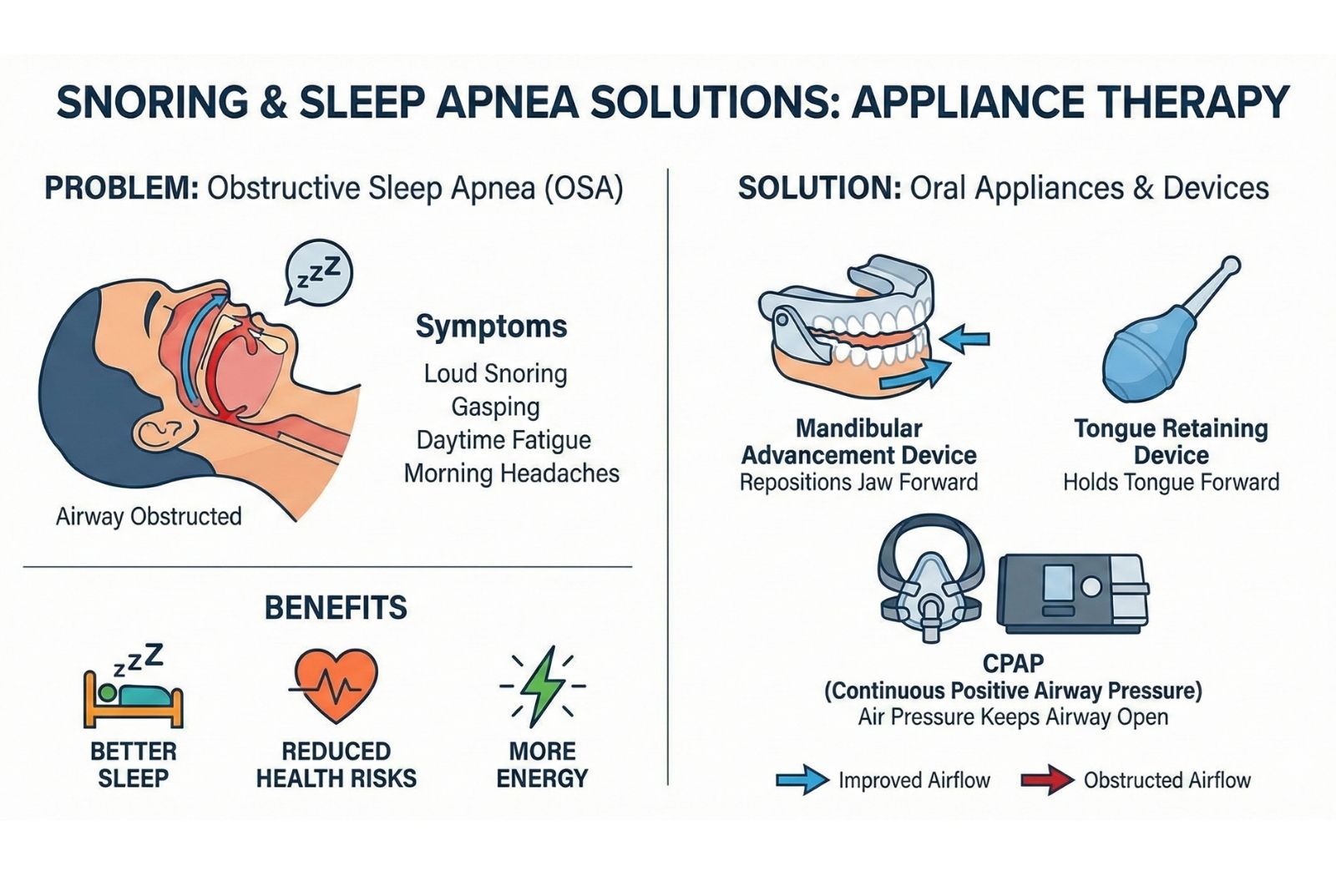Why Do People Snore?
Snoring typically happens when your airway narrows while you sleep. As the muscles of the throat relax, the soft tissues at the back of the mouth and upper throat can flutter with each breath—creating the familiar snoring sound.
When snoring signals something more
In some cases, the airway doesn’t just narrow—it briefly closes. Breathing then stops for short periods during sleep, a condition known as obstructive sleep apnoea (OSA). OSA goes beyond simple snoring and can have significant health implications if left unaddressed. If you suspect this may be affecting you or a partner, it’s worth seeking a professional assessment.
Snoring Might Be More Than A Nuisance
Persistent snoring can point to an underlying health issue, not just a noisy night’s sleep. Research links poor, fragmented sleep from snoring to a range of knock-on effects, including:
- Daytime tiredness and reduced alertness
- Trouble concentrating, memory lapses, and slower reaction times
- Irritability, low mood, and relationship strain
- Morning headaches and a dry, sore throat
- Elevated blood pressure and increased cardiovascular risk
- Lowered work performance and higher accident risk
If these sound familiar—or your partner notices pauses in your breathing—book a professional assessment to rule out conditions like obstructive sleep apnoea.






